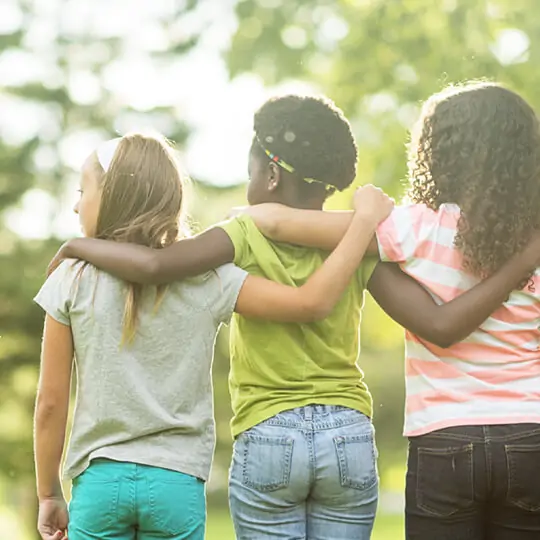
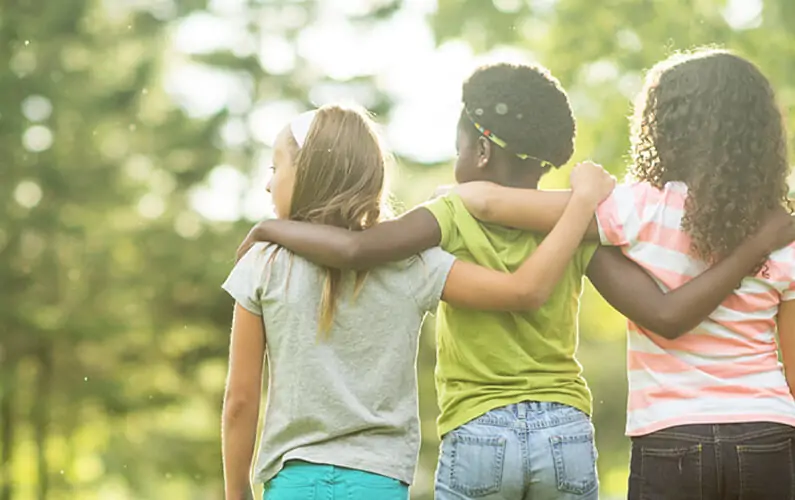
Racism Is Rampant in Porn: 3 Beautiful Ways to Help Kids Reject Both
Did you know that porn is racist? It’s true! Not only is pornography teaching toxic messages about sex, it’s also a cesspool of racism. In fact, pornography is rife with racist stereotypes. And children who view it are swallowing racist messages--making pornography even more dangerous and despicable.
(Keep reading for 3 beautiful and practical ways to raise children who reject racism.)
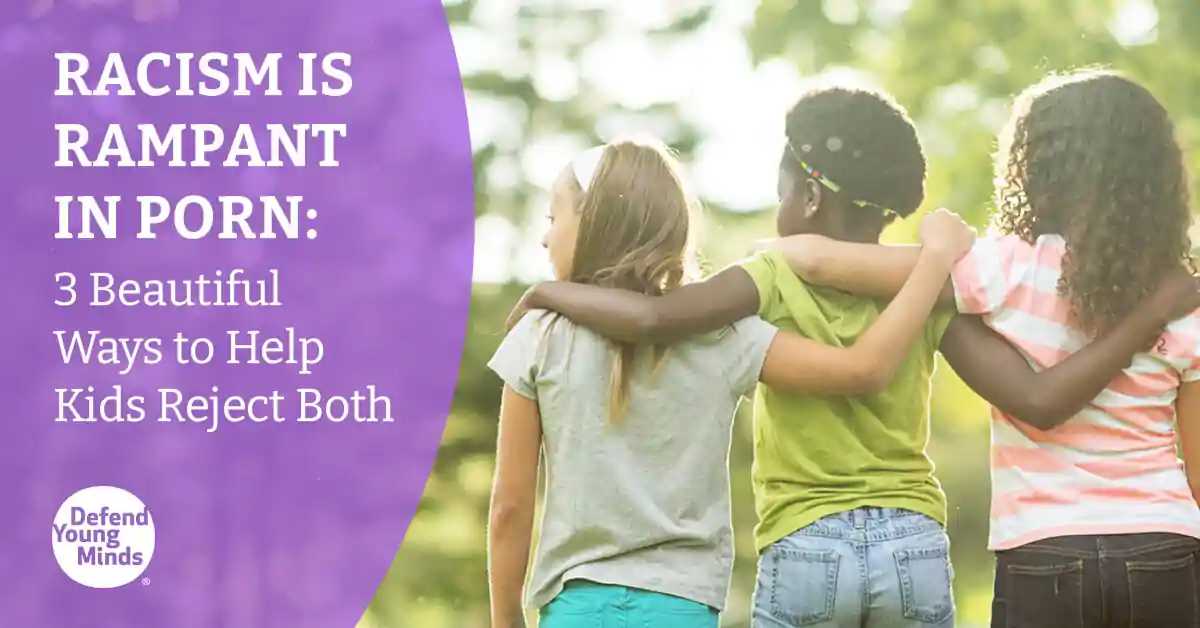
Racism in Pornography
You might find this surprising, but when it comes to pornography, very few are calling it out for being so racist. Thankfully, some unsung heroes are increasing our awareness of the racism perpetuated by porn. Dr. Carolyn West, Ph.D., associate professor of psychology at the University of Washington, notes that while we’ve begun to point out racism in most forms of media, pornography is a glaring exception.
“[T]he porn industry appears to get a free pass to promote horrifically racist and abusive content in the name of sexual entertainment to anyone with internet access, even children.” -Dr. Carolyn West, Ph.D., Fight the New Drug
Black women in pornography have been depicted as slaves being raped and are often portrayed as less than human--as animals in cages, wearing collars.
“Isn’t it interesting how in porn, so many things are normalized that wouldn’t ever be tolerated in any other scenario?” -Fight the New Drug
The hypocrisy is astounding. And there’s none greater than the hypocrisy of PornHub, the largest porn site in the industry. They recently tweeted, “Pornhub stands in solidarity against racism and social injustice.”
Yet “PornHub and its affiliated sites promote, distribute, and profit from some of the internet’s most virulently racist and racially exploitative content….and hosts gigabytes of ‘interracial’ videos, many featuring the ‘N-word’ in the title, depicting slavery-related themes, or deploying the most offensive racial stereotypes imaginable.” -Porn Help
Porn is Shaping Young People’s Attitudes
As this dehumanization is normalized in porn culture and more young people are turning to porn to learn about sex, sexual violence towards women of color is only amplified and further accepted.
“Young people are consuming porn as a form of sexual education, and this is especially problematic because porn promotes horrifically racist and abusive content.... Parents and teachers can learn ways to have these uncomfortable conversations about porn with the children and adolescents in their lives.” -Dr. Carolyn West, Ph.D., Fight the New Drug
These are difficult conversations to have with kids, yet we cannot leave them to figure these things out on their own. If we don’t equip them with the tools they need to reject racism and pornography, then the porn industry will teach their own perverted version.
Our kids deserve better. We need to teach them to reject pornography and the racism it perpetuates.
Rejecting Both Porn and Racism
Both racism and pornography dehumanize and objectify people. That’s an important connection to make. And a powerful way to counter objectification is to teach and model empathy--that each person has intrinsic worth, despite their differences.
- When you teach kids to reject pornography, you teach them to reject an incredibly racist and exploitative industry.
- Likewise, teaching kids to reject racism helps them be more empathetic towards others. This will make children more able to recognize and reject the racism, exploitation, and objectification found in pornography.
3 Ways to Teach Kids to Reject Racism
Many people are asking what they can do to stand up against racism. Teaching your own kids to reject racism is a start. We’ve got three ideas: expose them to diverse cultures, be an example, and make it a topic of conversation. Children who can recognize and reject racism make the future brighter for everyone.
1. Expose kids to diverse cultures.
Obviously it’s easier to expose children to different races, religious backgrounds and cultures in diverse communities. However, even if you don’t live in a culturally diverse community, you can still broaden your children’s lives with some of these ideas:
- Intentionally select media that reflects and explores different cultures (books, movies, ethnic cooking shows, music, documentaries, etc.)
- Travel (if possible) outside of your own cultural boundaries. This might mean a different city, state or country, but could be as simple as going to a playground in a different neighborhood.
- Attend cultural events outside of your own culture.
- Take your kids to an ethnic grocery store--maybe try something new!
2. Be an example.
- Note the positive traits of other cultures and brainstorm ways to incorporate them in your own life.
- Provide opportunities for your children to attend cultural events outside of your own culture.
- Be an active advocate in your community for refugees and find ways to serve them.
- Take note of your own prejudices that you might be perpetuating through your words or actions. If you make a mistake in front of your kids, point it out and discuss it. (FYI--newer editions of Good Pictures Bad Pictures are more racially diverse thanks to a few readers who spoke up. We can all work to do better!)
3. Just talk about it!
Sesame Workshop (from the makers of Sesame Street) conducted a survey of parents to see whether parents were talking to their kids about social issues. They made an interesting conclusion:
“Many of the parents who are talking not just about race/ethnicity but also gender, class and religion are doing so because their children are hearing negative comments about their own identities.”
Basically, they found that the majority of families weren’t talking about race unless their kids were hearing negative comments about their own race.
This needs to change. We need to be intentional so that all children, no matter their race or religion, are taught to appreciate differences and empathize with others’ life experiences.
At Defend Young Minds we’re BIG FANS of using books to start conversations with kids.
[[CTA]]
Here are some book lists by age that will help you discuss race and inclusion with your kids:
- Preschool to Elementary Children’s Picture Books
- Can You Say Peace is one of our favorites that’s not on this list.
- Project LIT’s Book lists for Middle Grades (ages 8-12) to Young Adult (ages 12-18)
- 2019-2020
- 2018-2019 This link also gives a little background on Project LIT
- All Project Lit Books: This isn’t a list but there is a graphic that shows the covers of all the books since the project started in 2016.
(Disclaimer: We have not read all of these books and therefore cannot endorse them on an individual basis. We trust you, our readers, to use your own discretion as you select books to read and discuss with your child).
For young kids, we also love this lesson “Alike & Different” from the “Life’s Little Lessons” series by PBS Kids’ Daniel Tiger’s Neighborhood.
We're here for you!
Protect Young Minds is here to help you tackle tough topics with your kids. As you teach your children to reject pornography, it’s important to highlight how porn perpetuates racist attitudes and objectification.
Kids need to learn that treating all people with respect means rejecting both pornography and racism!
Additional resources used for this article:
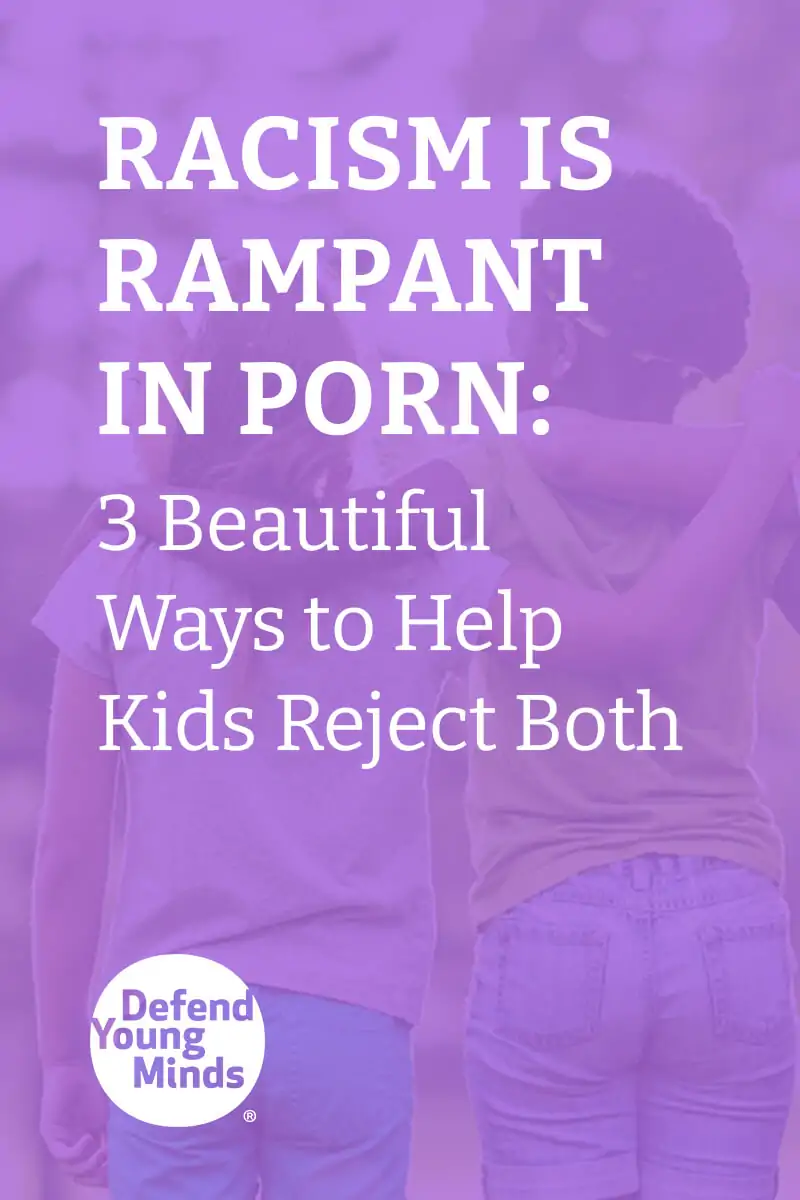
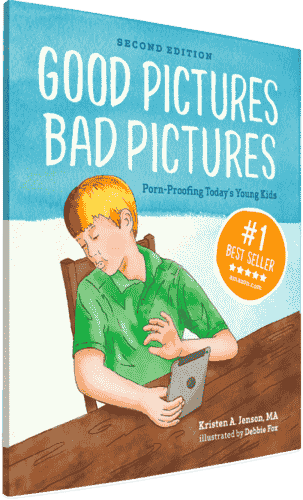
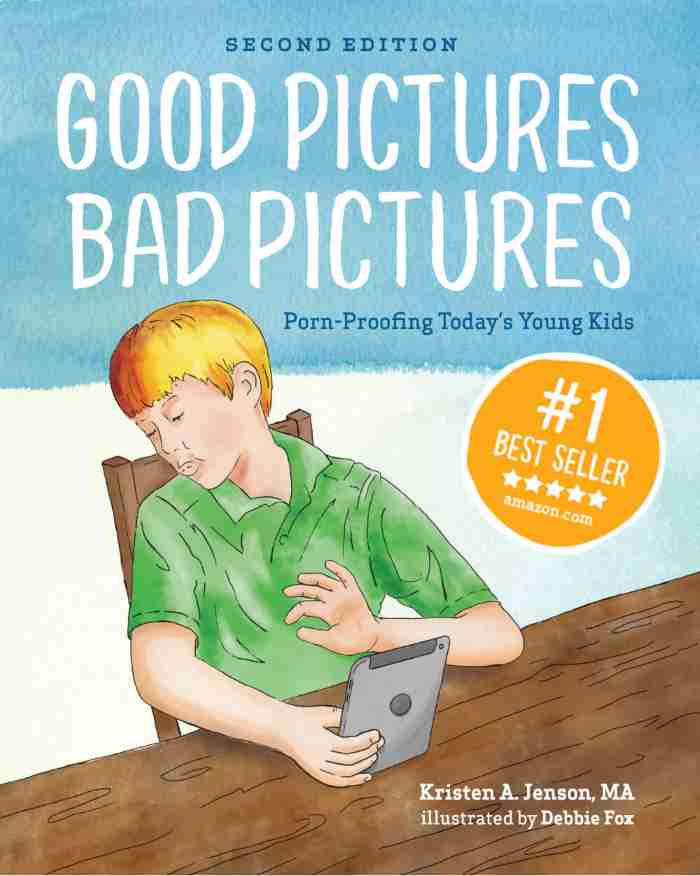
Good Pictures Bad Pictures
"I really like the no-shame approach the author takes. It's so much more than just 'don't watch or look at porn.' It gave my children a real understanding about the brain and its natural response to pornography, how it can affect you if you look at it, and how to be prepared when you do come across it (since, let's face it... it's gonna happen at some point)." -Amazon Review by D.O.






